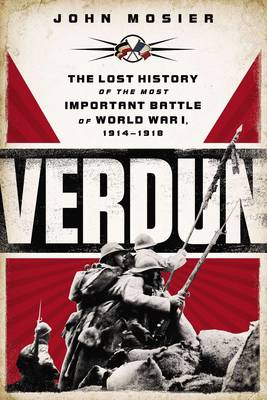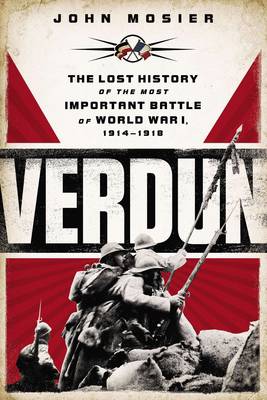
- Retrait gratuit dans votre magasin Club
- 7.000.000 titres dans notre catalogue
- Payer en toute sécurité
- Toujours un magasin près de chez vous
- Retrait gratuit dans votre magasin Club
- 7.000.000 titres dans notre catalogue
- Payer en toute sécurité
- Toujours un magasin près de chez vous
Verdun
The Lost History of the Most Important Battle of World War I, 1914-1918
John Mosier
Livre broché | Anglais
35,95 €
+ 71 points
Description
Alongside Waterloo and Gettysburg, the Battle of Verdun during the First World War stands as one of history's greatest clashes. Perfect for military history buffs, this compelling account of one of World War I's most important battles explains why it is also the most complex and misunderstood. Although British historians have always seen Verdun as a one-year battle designed by the German chief of staff to bleed France white, historian John Mosier's careful analysis of the German plans reveals a much more abstract and theoretical approach. From the very beginning of the war until the armistice in 1918, no fewer than eight distinct battles were waged there. These conflicts are largely unknown, even in France, owing to the obsessive secrecy of the French high command. Our understanding of Verdun has long been mired in myths, false assumptions, propaganda, and distortions. Now, using numerous accounts of military analysts, serving officers, and eyewitnesses, including French sources that have never been translated, Mosier offers a compelling reassessment of the Great War's most important battle.
Spécifications
Parties prenantes
- Auteur(s) :
- Editeur:
Contenu
- Nombre de pages :
- 416
- Langue:
- Anglais
Caractéristiques
- EAN:
- 9780451414632
- Date de parution :
- 07-10-14
- Format:
- Livre broché
- Format numérique:
- Trade paperback (VS)
- Dimensions :
- 152 mm x 229 mm
- Poids :
- 385 g







